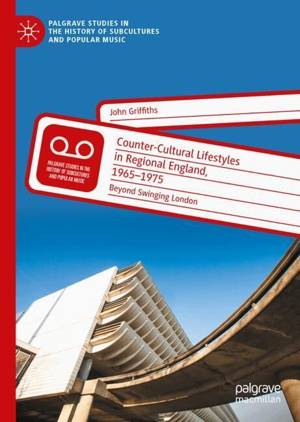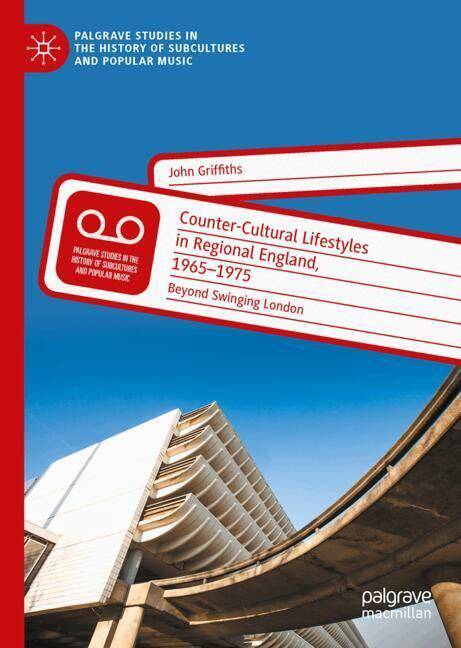
Je cadeautjes zeker op tijd in huis hebben voor de feestdagen? Kom langs in onze winkels en vind het perfecte geschenk!
- Afhalen na 1 uur in een winkel met voorraad
- Gratis thuislevering in België vanaf € 30
- Ruim aanbod met 7 miljoen producten
Je cadeautjes zeker op tijd in huis hebben voor de feestdagen? Kom langs in onze winkels en vind het perfecte geschenk!
- Afhalen na 1 uur in een winkel met voorraad
- Gratis thuislevering in België vanaf € 30
- Ruim aanbod met 7 miljoen producten
Zoeken
€ 137,45
+ 274 punten
Omschrijving
This book breaks new ground by exploring regional scenes beyond London during the years 1965 to 1975. Whilst many accounts of this era have tended to focus on the Capital, John Griffiths journeys beyond its boundaries to assess how far the cultures usually implied to be exclusive to the metropolis in fact diffused into the English counties. The book examines both the 'swinging period' of post-1945 history (c. 1965-1967) and the years of the counter-culture c. 1968-1975, examining topics such as the rise of the boutique, alternative cinema, art festivals and art labs, and regional funding for the experimental, before moving on to consider the attitudes of regional newspapers to changes in society. In its latter sections the legacy of 1968 is considered, with specific focus on the rise of Women's Liberation and Gay Liberation movements. It concludes with an examination of student life on the regional campus. This book argues that, contrary to many accounts that branded them as cultural deserts, the 1960s saw the 'provinces' rebranded as 'regions' and were increasingly up to speed with London culture.
Specificaties
Betrokkenen
- Auteur(s):
- Uitgeverij:
Inhoud
- Taal:
- Engels
- Reeks:
Eigenschappen
- Productcode (EAN):
- 9783031407390
- Verschijningsdatum:
- 12/06/2026
- Uitvoering:
- Hardcover
- Formaat:
- Genaaid
- Afmetingen:
- 148 mm x 210 mm

Alleen bij Standaard Boekhandel
+ 274 punten op je klantenkaart van Standaard Boekhandel
Beoordelingen
We publiceren alleen reviews die voldoen aan de voorwaarden voor reviews. Bekijk onze voorwaarden voor reviews.









